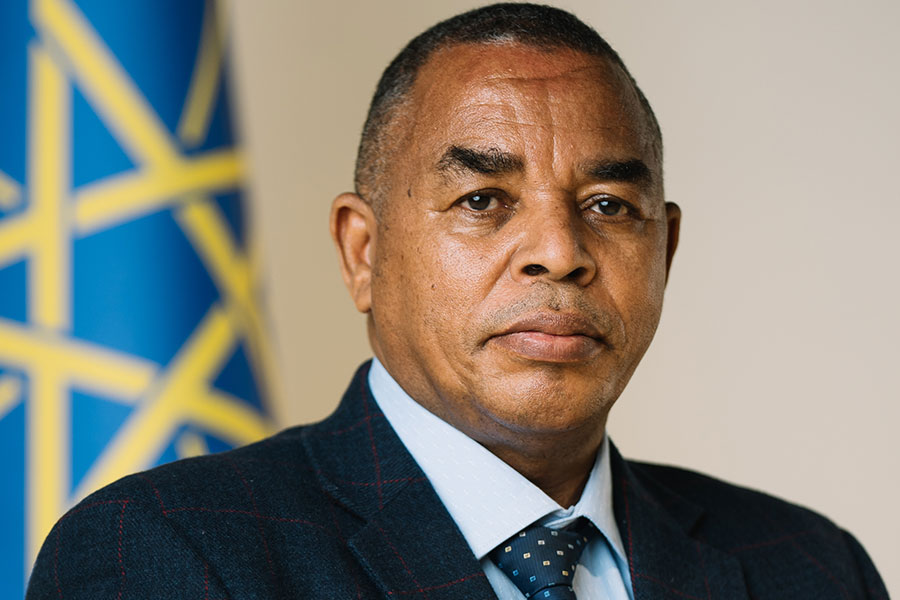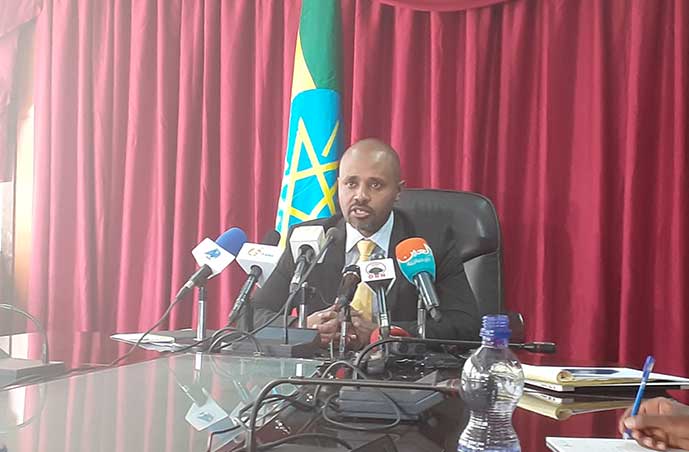
Covid-19 | Jun 13,2020
Officials at the Ministry of Health and a federal agency in charge of quality education in higher learning are at loggerheads over the readiness of new graduates joining the medical industry to sit for examinations. The fate of 20,000 medical students is at stake.
Scheduled to occur at the end of this month, officials at the Higher Education Relevance & Quality Agency (HERQA) want to see a delay for fear that graduates may not be eligible for the examinations needed for a license to practice medicine.
They have cautioned the Ministry of Health to reconsider its plans to administer the examinations in 38 centres beginning March 29, 2021. In a letter issued on March 19, the Agency has raised its concerns that the examinees may "not qualify for the examinations," arguing that they should only take place after the Agency has conducted an assessment.
The Ministry has been administering these examinations three times a year since 2018.
Andualem Admassie, director-general of the Agency and former CEO of Ethio telecom, says he is concerned about the licensing of medical professionals as it is a matter of public health safety. He worries about responsibilities for medical mishaps that may happen afterward.
However, officials from the Ministry say that they had previously requested the Agency to conduct its assessments; the Agency did not follow through on these requests, Tewodros Abebaw, head of the National Health Professionals Competency Assessment & Licensure Directorate under the Ministry, disclosed to Fortune.
"Now that they have seen the gap the complacency has created, they are indirectly meeting what we wanted all along," said Tewodros. "It would rather complement our work instead of causing a hurdle."
Although the Agency has requested postponing the examinations until the proper assessment is done, the Ministry is hesitant to do so. Its officials are determined to send the list to the Agency this week, convinced that the remaining days are sufficient to cross-check and send back approval.
Andualem remains skeptical.
"If we were to find all the students in our database, a day would have been sufficient," he told Fortune.
Andualem is doubtful that this would be the case, and the Agency might need to collect lists from each institution where the students have graduated from to confirm eligibility. The Director-General says that some learning institutions have had their licenses revoked, while others are suspected of registering students who have not met the matriculation point requirements. A case in point is a college in Adama (Nazareth). The Agency has revoked its permits but blames the college for having enlisted graduates for examination.
"If similar cases arise and institutions are hesitant to send a list, the process might take a while, even a year," Andualem said.
The Ministry wants to examine professionals and deploy them in time, the students want jobs, and the Agency wants to make sure legal procedures are followed.
The Agency's assessments are crucial; it protects the public, says a leader of a lobby group advocating for the interests of the medical community in Ethiopia.
The arguments presented by both entities are understandable, and it would have been good had they cooperated beforehand, according to Tegbar Yigzaw (MD), president of the Ethiopian Medical Association.
"If the examination presented is up to standard, it should be able to filter out the inadequate students," Tegbar told Fortune.
PUBLISHED ON
Mar 20,2021 [ VOL
21 , NO
1090]

Covid-19 | Jun 13,2020

Radar | Jan 23,2021

Fortune News | Oct 18,2025

Agenda | Nov 16,2024

Fortune News | Jun 29,2019

Radar | Sep 19,2020

Fortune News | Aug 27,2022

Editorial | Aug 30,2025

Radar | Sep 01,2024

Fortune News | Sep 28,2019

Dec 22 , 2024 . By TIZITA SHEWAFERAW
Charged with transforming colossal state-owned enterprises into modern and competitiv...

Aug 18 , 2024 . By AKSAH ITALO
Although predictable Yonas Zerihun's job in the ride-hailing service is not immune to...

Jul 28 , 2024 . By TIZITA SHEWAFERAW
Unhabitual, perhaps too many, Samuel Gebreyohannes, 38, used to occasionally enjoy a couple of beers at breakfast. However, he recently swit...

Jul 13 , 2024 . By AKSAH ITALO
Investors who rely on tractors, trucks, and field vehicles for commuting, transporting commodities, and f...

Oct 25 , 2025
The regulatory machinery is on overdrive. In only two years, no fewer than 35 new pro...

Oct 18 , 2025
The political establishment, notably the ruling party and its top brass, has become p...

Oct 11 , 2025
Ladislas Farago, a roving Associated Press (AP) correspondent, arrived in Ethiopia in...

Oct 4 , 2025
Eyob Tekalegn (PhD) had been in the Governor's chair for only weeks when, on Septembe...